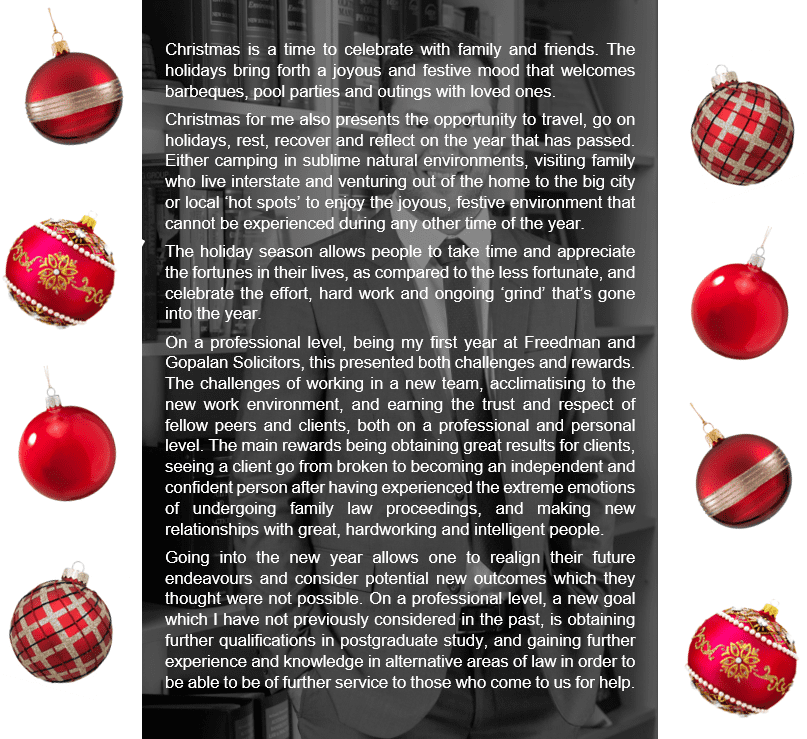What is the COVID-19 virus?
COVID 19 has sparked a global pandemic due to the prominence of the virus in all countries which threatens the safety of people.
The corona virus is similar to many other respiratory viruses, in the sense that it can spread in small droplets which are released from the nose and mouth of an infected person. However, the virus can also be contracted by an individual touching surfaces, which have been contaminated with the virus. These occurrences have provided an insight into understanding and carrying out experiments to examine how long the virus can survive in the external surroundings of the human body.
Infection through the air
A single human cough produces around 3000 droplets, which can land on other people, clothing or surfaces around them, whilst smaller particles may remain in the air. Evidence also suggests that the virus lasts longer in faecal matter, which demonstrates that individuals who leave bathrooms without washing their hands thoroughly, would potentially contaminate anything they touch.
World Health Organisation and other health authorities have indicated the importance of washing one’s hand constantly and disinfecting frequently touched surfaces to help prevent the spread of the virus. A study has displayed that the virus could survive in droplets for up to 3 hours after being coughed into the air, and fine droplets, which range from 1-5 micrometres in size, are able to remain airborne for numerous hours in still air.
Joseph Allen, a professor of public Health at Harvard, suggested that the data supports the idea that people should take practical precautions, such as ensuring the flow of fresh air and good ventilation, to prevent airborne spread.
Infection of surfaces
The virus has also been found to be able to survive on metal, glass and plastic for periods as long as nine days, unless properly disinfected. In low temperatures, the virus can survive for up to 28 days.
The National Institute of Health study has also discovered that COVID-19 survives up to 23 hours on cardboard, and up to 3 days on plastic and stainless-steel surfaces.
These findings suggest that the virus thrives on such materials including door handles, plastic coated worktops or other hard surfaces. However, researchers have found that copper surfaces tend to kill the virus in roughly 4 hours.
Infection on clothing
On clothing and other surfaces which are difficult disinfect, the ability for the virus to survive is not yet evident. Head of the virus ecology section at Rocky Mountain Laboratories, Vincent Munster, has stated that the absorbent natural fibres may dry up the virus quickly.
“We speculate due to the porous material, it desiccates rapidly and might be stuck to the fibres,” he says. “Changes in temperature and humidity may also affect how long it can survive, and so may explain why it was less stable in suspended droplets in the air, as they are more exposed.”
An epidemiologist at the University of North Carolina, Rachel Graham, has supported this idea, stating that “porous surfaces – like money, hair and fabric – don’t allow viruses to survive as long because of the small spaces or holes in them can trap the microbe and prevent its transfer.
Infection on food
Daniel Kuritzkes, an infectious disease expert at Brigham and Women’s Hospital, has also stated that food is not a major risk factor, due to most infections occurring in the respiratory system, not the digestive tract. The infections typically originate from contracting the virus on an individual’s hand then proceeding to touch their face. He continues to remark that “utensils, plates and cups which may be handled by an immense amount of people in a cafeteria setting for example, would be of more concern, and precautions are important to ensure the minimisation of infected people.”
What is still unknown?
Given that this virus is a recent addition to our world, the impact environmental conditions have on its survival and growth is unknown. There is discussion that scientists will continue to analyse the environmental conditions including temperature and humidity – factors which may affect the virus’ ability to live in a specific environment. In addition to this, in order to gain a deeper understanding of real-world transmissions, they plan to experiment with variables to test if the spread of the virus may be hindered during warm summers.
General Motors has announced that the iconic brand Holden will cease production and trading by the end of the year. The brand we think of as the ultimate Australian car was founded in Adelaide in 1856 as a saddlery manufacturer, but it was actually sold to General Motors, based in Detroit, 89 years ago. The parent company General Motors has made the decision and announcement.
While production will cease in June, Holden vehicles that have already been built will be sold over a period of 'several months', according to GM Holden's Interim Managing Director Kristian Aquilina. For those who already own a Holden, General Motors has announced it will continue to support its cars with 'warranty, spare parts, servicing and recalls for at least the next 10 years'.
Holden currently employs 800 people, and by June, around 600 will be out of a job. The remaining 200 will constitute the after-sales teams to support existing customers. Apart from employees, there are 185 Holden dealerships in Australia and 31 in New Zealand. General Motors has announced it will work confidentially with these dealerships to ensure a just and equitable transition.
The decline of car manufacturing in Australia.
This announcement comes just three years after the end of local manufacturing in Australia. On 11 December 2013 Holden announced it would cease vehicle and engine production by the end of 2017, and on 20 October 2017 the last existing vehicle plan closed.
Between 1997 and 2012, this industry received $30 billion of assistance in subsidies and other government assistance. In March 2012, Holden was given a $270 million lifeline by the federal government, and the state governments of South Australia and Victoria. However, clearly this assistance was not enough to stop the inexorable shift away from manufacturing in Australia. Some have also said that the assistance in recent years has lessened and become insufficient.
 As I complete 22 years of my professional years, I was asked by my friend whether I am actually happy and whether I enjoy the legal profession?
As I complete 22 years of my professional years, I was asked by my friend whether I am actually happy and whether I enjoy the legal profession?
I vividly remember my graduation day and Admission day (at Sydney Uni campus 1997 and at the Supreme Court of NSW 1998) like it was yesterday. Those days were filled with joy, hope and youthfulness. The young blood wanting to make a change in the world… wanting to be the change and do amazingly well to make all my loved ones and clients proud.
But as the years roll along, days into months, months to years and years to decades… and here I am 22 years later, well into my professional life. I have learnt many lessons and am grateful for the same.
I wish to share 22 snippets that I have learnt and follow each day:
- Love what you do and do what you love.
- Being a solicitor who predominantly deals with Family Law, it is a true blessing to be able to have a job, where you can serve people during their times of distress and make a difference during their difficult times.
- One is gifted with new 24 hours each day filled with new opportunities to explore and new lessons to learn - for each day teaches you something for sure.
- Never compromise integrity or truth and justice will certainly prevail.
- Power of compassion and kindness should never be underestimated- for they are real rare commodities in this era. Hence I love how my team works with the motto, “People over profit”.
- I am grateful for the amazing gurus, mentors and angels that I have been blessed along the professional journey, who have helped me get to where I am today - always hang onto the wonderful mentors you have, ask for guidance when you need it and be willing to learn and correct yourself at all times.
- Feel super blessed to have had wonderful clients along the way- at the end of the day, people can tell if you truly care and once they know you do, there is implicit trust in the relationship that you build.
- There will always be someone doing their best to pull you down- that’s just a fact of life. I am still learning to accept it with a smile and tell myself, “Let them do what they love doing and I shall continue doing what I love to do”, for there is no joy gained trying to prove yourself or your side of the argument to them.
- “Appreciation is a wonderful thing. It makes what is excellent in others, belong to us as well” ~ Voltaire ~ always lift others around you. It motivates others and inspires you even more to excel further.
- Respect comes to you, when you give it. So give it at all times, regardless of who they are.
- Time is the rarest commodity that no amount of money can buy. Hence I try and always be on time for any appointment. It shows that you respect the other person immensely.
- Never be under-prepared and being in the legal industry, you do not have a choice either.
- There are times when the world can be a cruel place and people can be mean. Do not feel bad to come to your room or sit in your car and cry out loud and let it go. Deal with your emotions so that you can be calm, composed and most professional at all times and the world does not have to see what you are going through.
- Its only with age that I have realised that I need to take care of myself as well - in the mad rush of always taking care of your boss, your client, your team, your family, your friends and foes, you forget to take care of yourself. You need to be replenished so that you can always give. So resort to what ever it takes to fill your “CUP” whether it is sports, yoga, music , dance, a slice of cake or anything else.
- Work will always be there - but life slips by so quickly and so unnoticeably….. so I am learning to find JOY in every day and JOY in the journey- I realise that each day gifts us with at least one joyous moment and one lesson to learn - cherish that.
- As elders always tell you, there is no shortcut to hard work and success. And the reward you can reap solely depends on what you can put in. It’s that simple.
- There are plenty of times, you get fearful… but the art of learning and progressing is to ensure that this fear does not stop you.
- Life of a small business owner is far from an easy joy ride, but the joys reaped from the victories and achievements are multi fold and makes it all worthwhile. And of course, your backbone is the wonderful and reliable team (who are indeed your family away from home) who represent you, your values and the firms goals. I am most grateful for the lovely team at F&G land - Thank you “A” team.
- Success to me previously meant to climb the corporate ladder, aiming to achieve the titles associated with each roles. But my family, wonderful team, clients, courts and peers have taught me over the years that true meaning of “Success” is to be a good person and to treat others right.
- Being positive, come what may and regardless of whatever situation you are placed in helps. Positive outcomes are achieved at all junctures if there is a positive attitude.
- Being grateful- for every case, every experience, every day, every moment is a blessing. And if of course, one’s professional journey can be made joyful and memorable, apart from being successful, you are indeed blessed.
I have learnt many lessons and am grateful for the same. And I look forward to many more wonderful experiences in the years to come.
With thanks, gratitude for the challenges and love that I am continued to be surrounded with each day.
On Saturday 2 February 2020, on a hot summer afternoon, father, Danny Abdallah, allowed his four children, and 3 others, to take a walk in their local neighbourhood in search of ice-cream, which he normally does.
Mr Abdallah rightfully believed that the likelihood of danger here was incalculably small. The children were to stick together whilst walking the streets of Oatlands, and with it still being light outside, there was no need for overbearing instruction. But no one could have possibly foreseen the tragic events that were due to transpire.
Just streets away from the Abdallah house, Samuel William Davidson, aged 29, allegedly got behind the wheel of his Mitsubishi Triton utility 4WD, after an afternoon drinking at home. It is believed that his car veered onto the wrong side of the road and mounted the kerb, striking the group of children. By the time his vehicle had stopped, Mr Davidson had killed four children and a fifth would later remain in a coma due to head injuries sustained in the crash.
Siblings, Antony, 13, Angelina, 12 and Sienna Abdallah, 9, were killed in the crash, along with their cousin Veronique Sakr, 11. “I told them just go for a walk, stay together, you should be OK”, a tearful Mr Abdallah explained to interviewers before pleading for drivers to “Please, be careful”.
The driver was breath-tested following the incident and returned a reading of 0.150, three times above the legal limit. Mr Davidson was arrested at the scene and has remained in custody since. He allegedly waived his right to an interview and subsequently, has been charged with 20 offences, including four counts of manslaughter, high-range drink-driving and a refusal to be interviewed by police.
The 20 charges against Mr Davidson, including four counts of manslaughter, were read in court on Sunday, 2 February 2020. He has also been charged with four counts of dangerous driving occasioning death while driving under the influence, four counts of dangerous driving occasioning death while driving in a dangerous manner, two counts of causing bodily harm by misconduct while in charge of a motor vehicle and negligent driving.
Mr Davidson did not appear in court and was refused bail until his next court appearance on 2 April 2020. The driver has not entered any pleas and could be facing a maximum sentence of 25 years in prison for manslaughter alone. But is this really a satisfactory punishment?
It is with a sad heart that the team at F&G send our love and prayers to the Abdallah family and all others affected by this horrific loss. We urge our justice system to hold Mr Davidson accountable for his actions and contend that he must be prosecuted to the fullest extent of the law. Whilst there is no cure for the pain these families must be facing, they deserve justice for the grief cased by Mr Davidson’s indifference to the lives of their precious children.
Superannuation is the regular payment made into a fund by an employee towards a future pension. In Australia superannuation is compulsory, meaning that there is a minimum percentage of income which must go into a super fund. There are certain protections around spending the money in a super fund.
For many people, it is one of their most valuable assets, alongside the family home. However, many people do not consider their superannuation fund when separating from their partner or spouse.
In a family law property settlement, super is considered an asset, alongside other assets such as the car, home and bank accounts. It can thus be subject to a splitting Order, wherein each party will receive a part of the super fund. Parties may also agree not to split the super, and decide that the party who does not receive the super fund will receive more of the other assets.
Why is superannuation so important? Why can't the parties just keep the fund in their own name?
In many cases there is a great disparity between the super fund held by a female party and that held by a male party, with women generally holding less super. In 2015-16 the overall gender difference in superannuation balances was 3.8%. The average men's superannuation balance was nearly twice the size of an average woman's.
This disparity can happen for a multitude of reasons, such as:
- Women taking more time out of the workforce due to caring, household and parenting duties,
- Higher rates of part-time work amongst women,
- Women working in industries and in roles which, on average, earn less than men (e.g. administrative roles, community service and sales)
- Less women in senior and executive roles in the workforce.
This is particularly relevant, as life expectancy for women is generally longer and thus retirement savings must stretch over a longer period.
Therefore, while important for both parties, it is particularly important for women to consider super one of the matrimonial assets which should be considered when splitting the asset pool after separation.
If you would like to enquire about any of the issues raised above, please do not hesitate to contact Freedman and Gopalan by calling 8917 8700 or by filling out the enquiry box.
As Australian school children are heading back to school this week, here are a few things to remember:
1. Children are legally required to be enrolled in school
By their 6th birthday, children must be enrolled in school or registered for home schooling. Children may go to school earlier (if they turn 5 years old on or before July 31 then 4 year olds may start school that year), but the mandatory age is 6 years old.
Children can enjoy free tuition at public schools run by the NSW government, unless they and/or their parents are temporary visa holders, in which case education fees may be charged.
If you are moving interstate or from overseas, it is worthwhile talking to the school principal about which year level they should enter.
2. School Zones
School going back means school zones are back in operation. The limit of 40km/hr around schools help protect children on their way to and from schools at the times and places where children are moving around in high numbers. The Term 1 school zones will be in effect on Monday to Friday, until Thursday 9 April when the school holidays will commence. They operate from 8am to 9.30am, and 2.30pm to 4pm.
3. Parenting Arrangements
If you and your ex-partner share custody of your child and have a parenting arrangement in place, the changeover may occur at school pick-up and drop-off. It is important to follow the parenting arrangement that you have agreed with the other parent, and give plenty of notice to the school and any relevant parties if there will be changes.
If your child is transitioning from pre-school to primary school, or from primary school to high school, your parenting plan may need to be updated. The location and/or times of pick-up and drop-off will likely have changed, and all parties, including the child, need to be appear of the altered arrangements.
If you would like to enquire about any of the issues raised above, please do not hesitate to contact Freedman and Gopalan by calling 8917 8700 or by filling out the enquiry box.
As with many large events and issues in the modern age, the advent and growth of the novel coronavirus (2019-nCoV) has seen an increase in misinformation about the illness. Notably, on 28 January 2020 one popular post went viral across Sydney with supposed information from the non-existent ‘Bureau of Diseasology Parramatta’ (pictured).
Contrary to the claims in the post, the coronavirus has not been found in rice, noodles, fortune cookies, onion rings, ice tea or energy drinks. Nor have there been any positive readings that specific train stations in Sydney’s western suburbs contain the virus.
Other discredited myths include that the virus jumped to humans from local snake species, or that the virus is caused by eating bat soup.
What do we know for sure about the new coronavirus strain?
It originated in Wuban, the capital of the Hubei province in central China. It is part of a group of viruses that includes the common cold, as well as more serious viruses such as SARS. The symptoms are thus similar to a cold or pneumonia: sneezing, coughing, fatigue, sore throat, a fever and/or shortness of breath. Despite some claims to the contrary, it can be spread from human to human through coughing and sneezing and can be spread before symptoms appear.
This information is not to be taken as updated medical advice. For this you should be looking at reliable and frequently updated government sites and news sources.
Where can you find updated information as it becomes available
The Federal department of Health’s website health.gov.au has a dedicated page for the outbreak, which can be found here, which has links to regular updates and to information.
State health department websites also publish updated information in relation to the coronavirus. In NSW, this can be found here.
Above all, be sceptical of what you hear and read online. It is easy to spread misinformation, paranoia and panic in a time of crisis. As happened and continues to happen in the ongoing bushfire crisis, misinformation can spread easily and cause major issues.
These holidays, I took the break as an opportunity to visit family and friends in Western Australia. One of my favourite places in Perth is the port city of Fremantle, which has now become another suburb in Perth's south. Here there are beautiful heritage buildings, as well as modern craft breweries and the opportunity to taste the best Italian food in Australia.
 From Fremantle you can catch a short ferry to Rottnest Island, which has recently become famous as the home of the quokkas (pictured) and a really lovely place for a day-trip, as cars are not allowed on the island, and the roads between beaches are filled with bicycles and walkers. Even if you are stung by a jellyfish (as I was!) you will still have a brilliant day.
From Fremantle you can catch a short ferry to Rottnest Island, which has recently become famous as the home of the quokkas (pictured) and a really lovely place for a day-trip, as cars are not allowed on the island, and the roads between beaches are filled with bicycles and walkers. Even if you are stung by a jellyfish (as I was!) you will still have a brilliant day.
Then I went down to the famously beautiful South-West, where there are beaches, wineries, caves, lighthouses and many other delights. Pictured is the beautiful Meelup Beach located in the Meelup Regional Park, and some grapes growing at my favourite winery, Hay Shed Hill, in the Margaret River region.


Next I went further south and slightly east to the Southern Forests region of WA and saw the Valley of the Giants, an ancient tingle forest, where tingle trees such as the one pictured can grow up to 75 metres tall, and can develop a distinctive hollow base. People used to park their cars in the base, until it was discovered that to grow so tall, tingle trees develop very horizontal root systems buttressing the tree, and these shallow systems were damaged by tourists until a tree fell down. The scenery and beaches were also beautiful here, especially Greens Pool and Elephant Rocks, which are a must-do for anyone going to southern WA who loves to swim.


I would whole-heartedly recommend going to Western Australia if you have the opportunity - the food, nature, people and sights are fantastic. This relaxing holiday has rejuvenated me for 2020, and I'm glad I've been able to share some of it with you!
As 2019 comes to a close, we at Freedman & Gopalan have been reflecting about the year that's been and the year (and decade) that is to come.
Read each of our team members personal reflections below:










